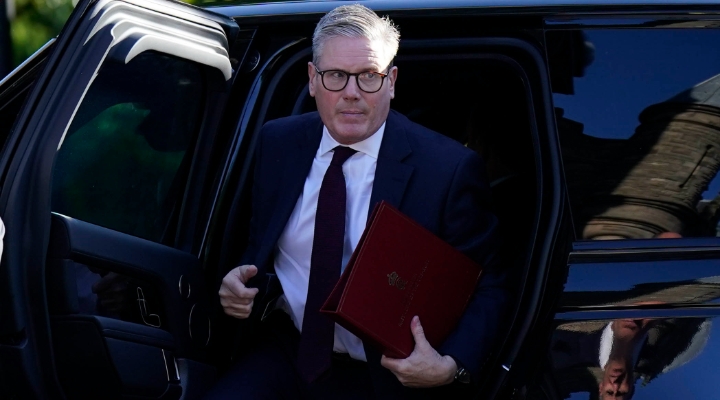Philip Hammond’s first and last Autumn Statement provided scant offerings for the nation’s savers and investors. Pensioners had the most to celebrate. The Chancellor announced that the ‘triple lock’ on the State Pension would remain in place until 2020 – although dropped strong hints it would disappear after this date.
For now, the State Pension will increase each year by whichever is higher: inflation as measured by CPI, average earnings, or 2.5%.
This should help protect pensioners if inflation does – as expected – increase sharply over the next few years.
However, Hammond announced a review of this ‘triple lock’ to ensure it remains affordable post 2020, given increased longevity risk. This protection was put in place in 2010, and no other state benefits enjoy such generous future-proofing.
Former pensions minister Ros Altmann, said: “The Chancellor is clearly signalling that the triple lock is not likely to stay beyond 2020.”
She added that the next spending review will assess support for an ageing population, which may also recommend further increases to the age at which people get their State Pension.
Pensions Exempt From Salary Sacrifice Crackdown
Elsewhere there was support for those saving for retirement – as Hammond announced that pension contributions would be exempt from his crackdown on ‘tax-avoiding’ salary sacrifice schemes.
Currently employees do not have tax to pay on wages that are paid directly into a company pension scheme. Other exemptions will include parents who use salary sacrifice to pay for childcare vouchers and the cycle to work scheme
However, similar arrangements where employees can reduce their tax bills by sacrificing salary for other benefits-in-kind such as private medical insurance will be under review.
Jon Greer, pension expert at Old Mutual Wealth, said he welcomed this exemption for pension contributions, but was concerned that this could be “the beginning of getting rid of salary sacrifice altogether.”
He added: “It’s likely that for now the government is concerned about the impact scrapping pension contribution salary-sacrifice will have on auto-enrolment take up. But we shouldn’t be too quick to rule out future changes as pensions represent a larger proportion of the lost national insurance contributions.”
Pension Cold Calls Banned
There was widespread support for the Chancellor’s announcement that there would be a Government clampdown on pension fraud and cold-callers. Former pensions minister Steve Webb, now director of Policy at Royal London added “This announcement is very welcome, but the ban needs to be introduced swiftly and be as comprehensive as possible. It needs to include unsolicited texts and emails as well as phone calls, and must cover a broad range of pension and investment cold-calling.”
Stephen Lowe, group communications director at Just Retirement, added: “The Government’s decision to introduce a ban on pensions cold calling – backed by stiff penalties - is to be welcomed.
“Almost half of over-65s have taken no steps to determine how retirement-ready they are, so receiving what seems to be a ‘perfectly’ timed call from a scammer offering to help can have disastrous consequences for their long term financial wellbeing.”
Pension Freedom Savers Hit
Hammond has also restricted the amount people can save into a pension, if they have taken benefits early, under the ‘pension freedom rules’.
The Government announced that the Money Purchase Annual Allowance (MPAA) will be reduced from £10,000 a year to £4,000 a year from April 2017.
This allowance restricts the tax- efficient pension contributions an individual can make if they have already accessed their pension savings. The Government has stated it expects to save £70 million a year from this change.
Andrew Tully, pensions technical director at Retirement Advantage, said: “The wide scale pension changes introduced from April 2015 were designed to give people much more freedom over how and when they can withdraw their pension pot. This restriction to the Money Purchase Annual Allowance is a significant restriction to that freedom. People will need to carefully consider before taking benefits whether there is a possibility that they - or their employer - may be able to make future pension contributions above a relatively low limit of £4,000 a year.”
Webb added: “Cutting this allowance flies in the face of efforts to make retirement more flexible. As soon as someone draws a pound of taxable cash using the pension freedoms, the amount they can save in a Money Purchase pension would be slashed from £40,000 to £4,000. This will have a profound impact on their ability to go on working and contributing worthwhile amounts to a pension.”
He added: “We also need to know what will happen for people who have already drawn taxable cash expecting to be able to go on saving £10,000 per year. Any retrospective change would be totally unfair to savers.”
New NS&I Savings Bond
Savers will not doubt be delighted to learn that NS&I will launch a new savings bond in the Spring, that is expected to pay interest rate of 2.2%. Given that almost all cash ISAs pay less than 1% - according to Moneyfacts - this will give a small fillip to cash savers.
However as the maximum investment is expected to be £3,000, this is likely to have a relatively small impact on more risk-averse savers, particularly older savings who rely on cash savings to top up their pension.
Previously, NS&I offered a special “Pensioners’ Bond” - this paid a far more generous 4% and was open to investments of £20,000.
Despite this demand is expected to be high for this new NS&I bond, so interested savers are advised to get applications in once it is officially launched.
No Changes to Lifetime ISA
Elsewhere it was more of a case of no news being good news when it comes to long-term savings products. There had been speculation that Hammond may make changes to the Lifetime ISA which was introduced by George Osborne in his last Budget. But as there was no mention of this new savings plan aimed at the under 40s so it is expected to launch, as planned, in April next year.
After several Budgets where the Chancellor has made wide-ranging changes to the pensions landscape many commentators welcomed the relative calm of this Autumn Statement.
Andy Bell, chief executive of AJ Bell said: “There was a refreshing lack of pensions changes in the Autumn Statement as the Chancellor resisted the lure of the tax relief honey pot.
“However, it’s clear that the public finances are not in good shape and the £21 billion net spend on pensions tax relief will not have gone unnoticed by the new Chancellor.”
He added that this figure should should not be viewed as a cost to the Exchequer but as “an investment in the future of our country” - pointing out that people not saving enough for their retirement remains one of the biggest social crises the country faces.
“Now is the ideal time to appoint an independent pensions tax relief commission with the remit to review the levels of private pension savings in the UK and the incentives that encourage those savings. This review should have the freedom to recommend a long term pensions tax relief strategy without being encumbered by short term political pressures.”




























